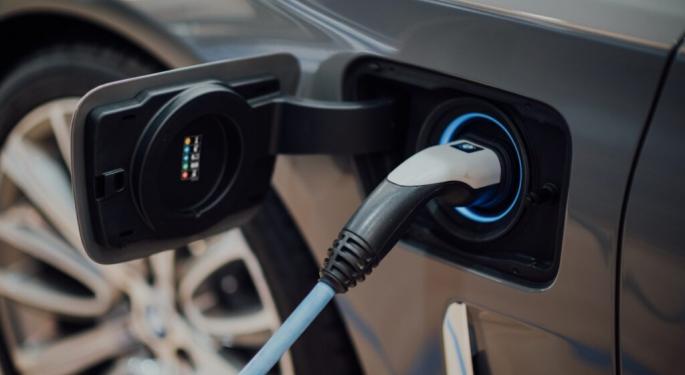Many Tesla, Nissan, GM And Other EV Models Hit By Tax Credit Cut: These EVs Are Still Eligible For $7.5K Benefit
In a significant blow to several electric vehicle (EV) manufacturers, various models have lost their eligibility for up to $7,500 in U.S. tax credits. The updated battery sourcing norms have impacted car models from Tesla Inc (NASDAQ:TSLA), Nissan Motor Co Ltd (OTC:NSANY), and General Motors Co (NYSE:GM), among others.
What Happened: The U.S. Treasury’s recent guidelines, designed to shift the U.S. electric vehicle supply chain away from China, have caused the count of EV models qualifying for tax credits to plunge from 43 to 13, Bloomberg reported.
Among the vehicles still eligible for consumer credit are Tesla’s Model Y, Rivian’s R1T pickup truck, Stellantis NV's Jeep Wrangler 4xe and Ford’s F-150 Lightning pickup truck.
See Also: Marjorie Taylor Greene Challenges House Speaker, Sparks GOP Clash: ‘The Honeymoon Is Over’
The new rules permit buyers to claim the tax credit at the point of sale at participating dealerships, provided they adhere to set limits on vehicle price and buyer income.
Models like the Volkswagen ID.4, Tesla Model 3 Rear Wheel Drive, Bayerische Motoren Werke AG’s (OTC:BMWYY) BMW X5 xDrive50e, Audi Q5 PHEV 55, Cadillac Lyriq, and Ford Motor Co’s (NYSE:F) E-Transit were among those that lost their tax credit eligibility. However, firms like Volkswagen AG (OTC:VWAGY) and Nissan expressed optimism about regaining eligibility under the new rules in the future, according to Reuters.
Tesla, on its website, noted that the “Cybertruck is likely to qualify for the federal tax credit later in 2024.”
Why It Matters: These changes come on the heels of the Biden administration’s Inflation Reduction Act (IRA), which converted the EV tax credit from a post-tax filing rebate to an instant incentive, thereby boosting EV sales. However, the modified tax credit system imposes stringent criteria for the sourcing of EV battery materials, primarily aimed at reducing dependence on foreign entities, particularly China. This policy change is expected to bolster the domestic supply of battery minerals despite the uncertainty surrounding the eligibility of certain EV models for the tax credit.
The new rules also follow the implementation of two new taxes in Kentucky that have made owning an EV more costly. This includes an additional annual registration fee of $120 and an extra 3 cents per kilowatt hour of electricity distributed at public EV charging stations. These changes significantly impact commuters and apartment dwellers who rely more on public charging, potentially making EV ownership more expensive for renters than homeowners.
Read Next: Bitdeer Technologies Group (NASDAQ:BTDR) Q3 Earnings Highlights: Net Loss Slashed, Gross Profit And Gross Margin Up
Image Via Unsplash
Engineered by
Benzinga Neuro, Edited by
Kaustubh Bagalkote
The GPT-4-based Benzinga Neuro content generation system exploits the
extensive Benzinga Ecosystem, including native data, APIs, and more to
create comprehensive and timely stories for you.
Learn more.
© 2025 Benzinga.com. Benzinga does not provide investment advice. All rights reserved.
Posted-In: BMW China Cybertruck General Motors KBNews Retail Sales Tech



